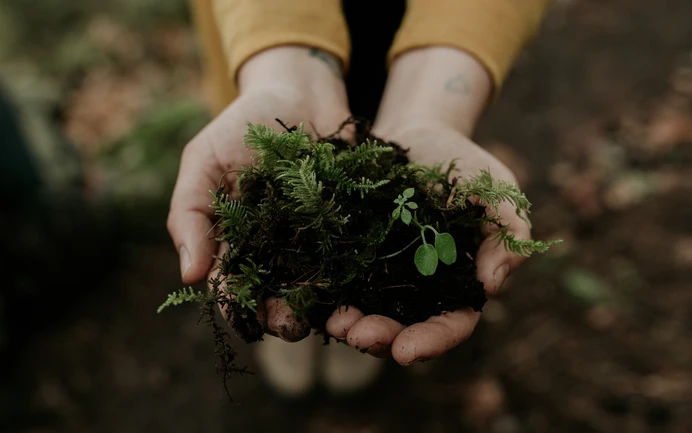
Is Cremation Bad For The Environment?
By: Tom Harries
May 19, 2022 | Green Funeral Practice
3 min readThe funeral industry is reliant on two traditional practices — conventional burial and cremation. In recent years, there has been a growing awareness of the negative impact these practices have on the environment.
Traditional burial involves the unsustainable consumption of valuable urban land as well as the burying of huge quantities of metal, wood and chemicals each year. Cremation is also bad for the environment, requiring fossil fuels and creating air pollution. This point is less well known, with many believing cremation is an environmentally-friendly alternative to burial.
This article explains the ways in which cremation impacts the environment. It then outlines some of the greener options that should be considered when making funeral arrangements.
The Impacts Of Traditional Cremation
Cremation is a fossil fuel driven process with high carbon emissions. The two primary environmental issues are that the process involves high energy usage and contributes to air pollution.
High Energy Usage
Cremation involves temperatures of between 1,200 and 2,000°F. With the average cremation taking two hours, there is a significant energy requirement in creating and maintaining this heat.
The energy source for cremation is typically natural gas. At a time when the world is trying to move away from a reliance on fossil fuels, cremation has become more popular. The funeral industry’s consumption of fossil fuels has therefore increased over the past decade.
Air Pollution
As a fossil fuel driven process, cremation produces significant amounts of carbon dioxide. One cremation is estimated to produce 535 lbs of CO2. This is the equivalent of a 609 mile car journey in an average sized car.

The combustion of fossil fuels also causes the emission of carbon monoxide, nitrogen oxides and sulfur dioxide. Other noxious substances emitted include fine soot and mercury.
Vaporized mercury is released by dental fillings during the process and is a particularly dangerous emission. Cremation caskets often contain metals and plastics, which cause other pollutants when incinerated.
While there are some measures taken to prevent or reduce pollution in the process, cremation remains fundamentally pollutive. Some proposed measures are unpopular and hard to impose, such as the removal of dental fillings before cremation.
Greener Options Exist
Funeral arrangements do not have to be environmentally damaging. If you wish your funeral planning to be eco-friendly, there are a number of greener options that are growing in availability and popularity.
Green burials are one such alternative to cremation. A green burial is a burial process that removes many of the environmentally damaging aspects of conventional burial. This typically involves use of a biodegradable burial vessel, the avoidance of chemicals such as embalming fluid and pesticides, and the minimal use of other resources for related elements such as grave marking. The green burial vs cremation question sees two very different types of process compete with each other. There are other alternatives to a traditional funeral process which are more similar to cremation in the process and output.
Get a quote in seconds.
Soil transformation is another green option, which is more convenient than green burial for those in urban areas. This natural process, also known as natural organic reduction and human composting, involves the gentle transformation of a body into nutrient-rich soil. Families can keep a portion of the soil - to scatter or plant - and the remaining soil is used for land conservation purposes, such as wildfire restoration and reforestation.

With a tangible output for families at the end of the process, soil transformation is similar in concept to cremation. The composting process is significantly better for the environment versus cremation. Not only does soil transformation avoid the significant emissions of cremation, it also has an actively positive environmental impact through the use of the nutrient-rich soil it produces. As an appealing process that is conceptually similar to cremation, composting bodies could be the green funeral option with the biggest positive impact on the industry.
Other green alternatives include alkaline hydrolysis, which is sometimes known as water cremation or aquamation (because the process uses c.400 gallons of water). This process produces a benign, micronutrient-rich liquid known as hydrolysate. The process allows for a similar experience to cremation, with the bones being dried and processed into ash matter. It therefore provides another conceptually similar alternative to cremation for those thinking about end-of-life planning.
Explore
At Earth, we provide soil transformation services. Families choose how much soil they’d like returned - to scatter or plant - with the remainder sent to local conservation sites for land restoration purposes.
We care deeply about the environment. That’s why we want to help make your last act on earth a green one. You can read about the natural organic reduction process on our service page.







